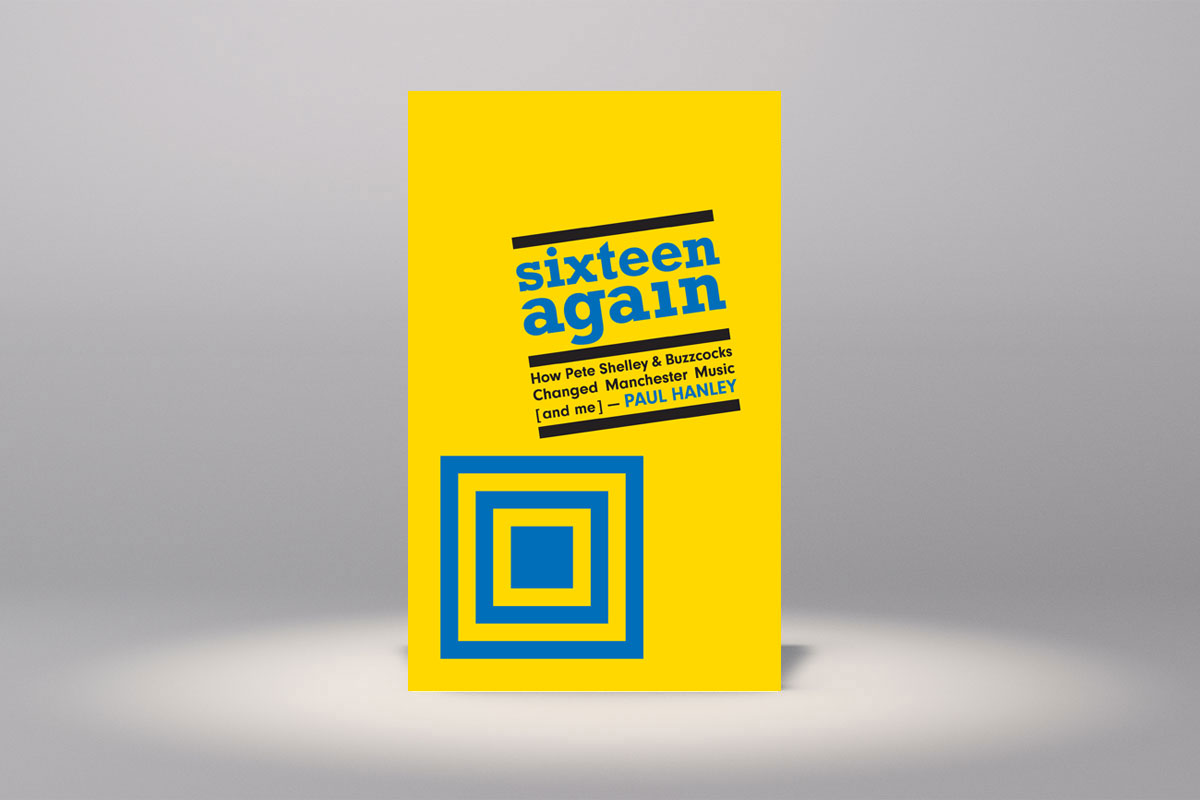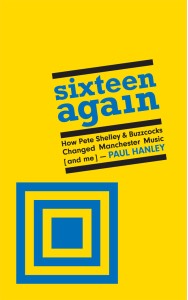INTRODUCTION
‘I never knew there was a law against sounding vulnerable.’
In February 1978, for my 14th birthday I got a drum kit. Before that I’d had to content myself with banging the arms of the sofa along to Top of the Pops, which obviously only requires the use of your hands in one particular place. So when I first sat down behind a kit, using my feet and moving round the whole thing were both skills I had yet to acquire. Consequently I was at a loss as to what I could play, but my brother Steve had a solution. One of the bands he’d seen several times over the last couple of years had a song where the drummer played the same simple pattern throughout the song, and only on the snare.1 All of which explains why ‘Sixteen’ by Buzzcocks was the first song I learned on the drums, even though I’d never actually heard it. Did this mean I was psychologically predisposed to love the record that contained it when it was released a month later? Who knows, but Another Music In A Different Kitchen very quickly became my favourite album, which it remains, most days, some 45 years later.
On the face of it, I’m probably not the best placed to write an objective biography of Buzzcocks, as their work, and specifically their work between 1977 and 1981, speaks to me so personally. But in order to get us to that point where they became my favourite band, we have to tell the group’s story, which thankfully is as fascinating and inspiring as you would expect, given it revolves around Pete Shelley – a genius songwriter and a cultural giant who in his own quiet way transformed Manchester as fundamentally as he transformed Manchester music.
The relationship between fan and group has layers that are often little to do with music. For a start, they have to come along at exactly the right time, and the most frantic part of my love affair with Buzzcocks was between the ages of 14 and 16 – at that age where ‘favourite band’ actually means something rather important. When I got seriously into music, the holy trinity of Buzzcocks, The Fall and Joy Division loomed over the Manchester music scene to a ridiculous degree,2 and I, like many others, loved them all. But I loved Buzzcocks. The Fall and Joy Division spoke to my brain, but Buzzcocks spoke to my heart. My compunction to tell the group’s story is intrinsically bound up in working out why.3
It was important to me that Buzzcocks were staunchly working class, but then all the best bands are. Maybe it was more that their working classness seemed intrinsically familial: rejecting the previous generation’s tastes never seemed to mean rejecting their parents. When my friends and I knocked on John Maher’s door, his mum answered and shouted him down from his bedroom, where in my imagination he kept his drum kit, just like I did. And when he came to the door he was more indulgent and friendly than we had a right to expect, given that we’d turned up unannounced on his doorstep. This general air of affability permeated Buzzcocks’ aesthetic and, crucially, Pete’s songs – which not only made them more alluring to the 14-year-old me than the other Manchester bands, it also elevated them over their main punk contemporaries the Sex Pistols and The Clash. The Pistols and The Clash looked like they could and would kick my head in given half a chance. Buzzcocks looked more like they would make me a brew. As I already faced the real prospect of getting a good hiding every time I went to school, I didn’t need it from my favourite band.4 And examining why Buzzcocks meant more to me than the Sex Pistols or The Clash means I can also show that they were every bit their equal, both musically and lyrically. And, equally importantly, nothing like either of them. While all three groups showed that cheap gear and a lack of formal musical training didn’t have to equate to a lack of sophistication (surely punk rock’s most important lesson, sadly missed by many), Shelley’s songs had a vulnerability and warmth that were in short supply in the other groups of punk’s vanguard. As Public Image Ltd put it in their affectionate parody of Buzzcocks on ‘Fodderstompf’, Pete Shelley only wanted to be loved. And he was.
1 As I soon found out, neither of these things are strictly true.
2 It can be argued that both Joy Division and The Fall owe their very existence to Buzzcocks, or at least have an enormous amount to thank them for.
3 Of course, such obsessions inevitably mellow with age, so I’ve also tried to explore the reasons for that.
4 I didn’t find out about Garth till later.

